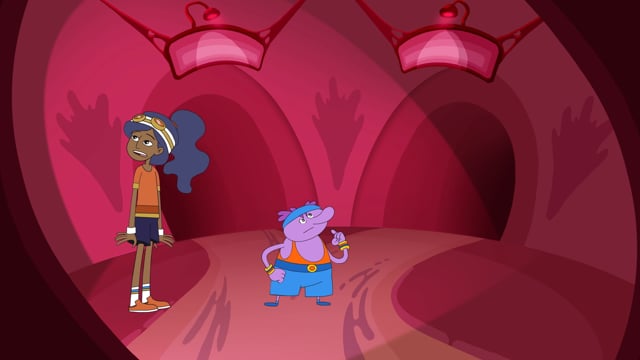What Is Asthma?
What Is Asthma?
Asthma is a condition that affects the airways. People with asthma (say: AZ-muh) have breathing problems that come and go. They may cough, wheeze, or be short of breath. This happens because airways get swollen, narrowed, and filled with mucus.
If you have asthma, you're not alone. Lots of kids have it — and lots take medicine to help them breathe better. With the right medicine and asthma action plan, asthma won't slow you down.
What Causes Asthma?
No one really knows why kids get asthma. Asthma tends to run in families, though. That means if a kid has asthma, they might have a parent, sibling, or other relative who has asthma or had it as a kid.
How Does Asthma Affect Breathing?
You take thousands of breaths every day. Normally, when you breathe in, air enters your nose or mouth and then goes to the windpipe, also called the trachea (say: TRAY-kee-uh). From there, the air travels into the lungs through breathing tubes. The whole process goes in reverse when you exhale.
In asthma, the airways are always a little inflamed (irritated and swollen), even when a person has no symptoms. They’re also react to certain things (“triggers”) that make them get even more inflamed, swollen, and filled with mucus, blocking the flow of air. The muscles around the airways tighten, making them even narrower, which makes it very hard to breathe. When this happens, it is called an asthma flare-up or asthma attack.

How Lungs Work
You breathe in. You breathe out. But what's happening inside? Watch this movie and find out!
What Are the Signs & Symptoms of Asthma?
A kid with asthma might have symptoms like:
- a cough, especially at night or while active
- trouble breathing
- a tight chest
- wheezing
Some kids might not have asthma symptoms at all between flare-ups. Others might always have mild symptoms that get worse during a flare-up. Some flare-ups are mild, but others can be serious. They can happen suddenly, but usually build up over time.
What Causes an Asthma Flare-Up?
Things that can cause you to have an asthma flare-up are called "triggers." Different kids have different triggers. Common triggers include:
- respiratory infections, like a cold or the flu
- allergies to things like pollen, mold, and pet dander
- irritants and pollutants in the air, like cigarette smoke or smog
- weather conditions, like cold and dry air, or hot and humid air
- strong emotions, like laughing, crying, or feeling stressed
- exercise
How Is Asthma Diagnosed?
If your doctor thinks you have asthma, you'll have to get checked out. One test that helps doctors diagnose asthma is spirometry. A spirometer is a device that measures how well your lungs work. It's as easy as blowing out your birthday candles!
How Is Asthma Treated?
It’s important to have your asthma under control. Asthma treatment involves two important things: avoiding triggers and taking medicine.
Avoiding Triggers
When you know what your triggers are, you and your parents can take steps to avoid them. Here are some ideas:
- Change your sheets and vacuum often to rid your home of dust.
- Keep your pet out of your bedroom if you're allergic to pet dander.
- Stay inside on days when pollen counts are high (ask your parents to check the local weather report).
If exercise makes your asthma worse, the doctor may prescribe a medicine to take before exercising to prevent your airways from tightening up. It’s important for kids with asthma to stay active. Exercise can help them stay healthier overall (in fact, many pro athletes have asthma).
Taking Medicines
Kids with asthma usually also take medicine. Most asthma medicines are breathed right into the lungs, but some are pills or liquids. They work in two ways:
- One way is by relaxing the muscles around the airways to help them open up. This works fast to make a kid feel better. That's why these medicines are sometimes called “quick-relief,” “fast-acting,” or “rescue” medicines.
- The other way is by making the airways less inflamed. Usually, kids take this kind of medicine every day to keep flare-ups from happening. That's why it's sometimes called “long-term control,” “controller,” or “maintenance” medicine.
Some kids will get both types of medicines from one inhaler (say: in-HAY-lur) device. They might need to use this “combination” inhaler every day, with added doses from it when they have symptoms. A kid with mild asthma might use a combination inhaler only for quick relief when they have symptoms, or before they exercise. Your health care team will be able to help you and your parents figure out which inhaler is best, and how and when you should use it.
Using an inhaler can be tricky, so a spacer helps. It attaches to the inhaler and holds the mist of medicine in one place (between the inhaler and your mouth). A spacer lets you breathe in when you're ready, so it's easier to inhale all the medicine into your lungs.
Can Asthma Go Away?
There's no cure for asthma, but a lot of kids find their asthma goes away or gets less serious as they get older. Some doctors think this happens because the airways grow wider as a kid grows up and gets bigger. With more room in the airways, the air has an easier time getting in and out.
Some people do have asthma as adults, but it doesn't have to slow them down. With medicine and the right care plan, your asthma symptoms can be managed so that you can do just about anything you want to do.
